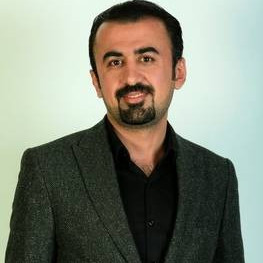Adam Abdul Jabbar Abdullah Bidar
Biography Narrative
Adam Jabar Abdullah holds a doctorate in speech science and Islamic teams. He taught at the Faculty of Islamic Sciences, University of Salahaddin and has been a lecturer at the Faculty of Babylon of philosophy in theology since 2015.
He has been working in the media since 2003 as a freelance journalist and member of the editorial board of several newspapers and magazines. He is involved with several associations such as the Islamic Thought Forum in Kurdistan, Friends of the Book Society and is a founding member of the Omid Association for the Elderly.
Moreover, he participated in the implementation of a number of projects related to minorities and peacebuilding. For instance, the project of the anniversary of the genocide in Sinjar that resulted in the issuance of a fatwa from the Mufti of Egypt and another from the Jordanian Ifta to condemn this crime in 2015.
Interreligious Activities and Initiatives
Harness the role of Iraqi universities in peacebuilding process
The project will be implemented in coordination with the University of Basra and Kirkuk follow up the discussion and obtaining the consent of the universities. Fifty people will participate in each event including religious leaders, academics, students, government officials and community leaders from both genders. The activities of the first day of training will focus on increasing participants’ knowledge about the constructive dialogue aspect. On the second day and during the organized focus group discussions participants will be encouraged to consolidate ideas to create mechanisms for promoting a culture of constructive dialogue that they would contribute to peacebuilding in
Iraq. The content of the mechanism will be discussed later with the apparatus that have relation with designing public policies and community leaders. Also, consolidate the recommendations from the workshops concerning engaging universities effectively in future peacebuilding efforts. The consolidated recommendations will be conveyed and discussed with universities administrations and perhaps with other universities. Six members of the KAICIID Fellowships Program will be responsible for implementing this project. Their roles will include but not limited to, communicate with officials, community leaders, universities and overseeing the workshops.

